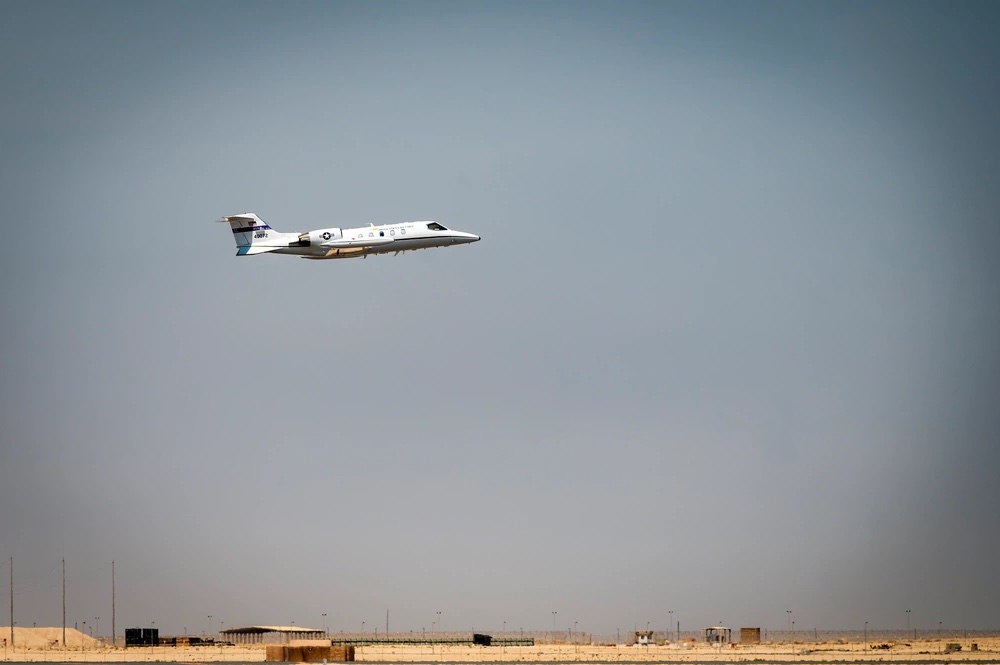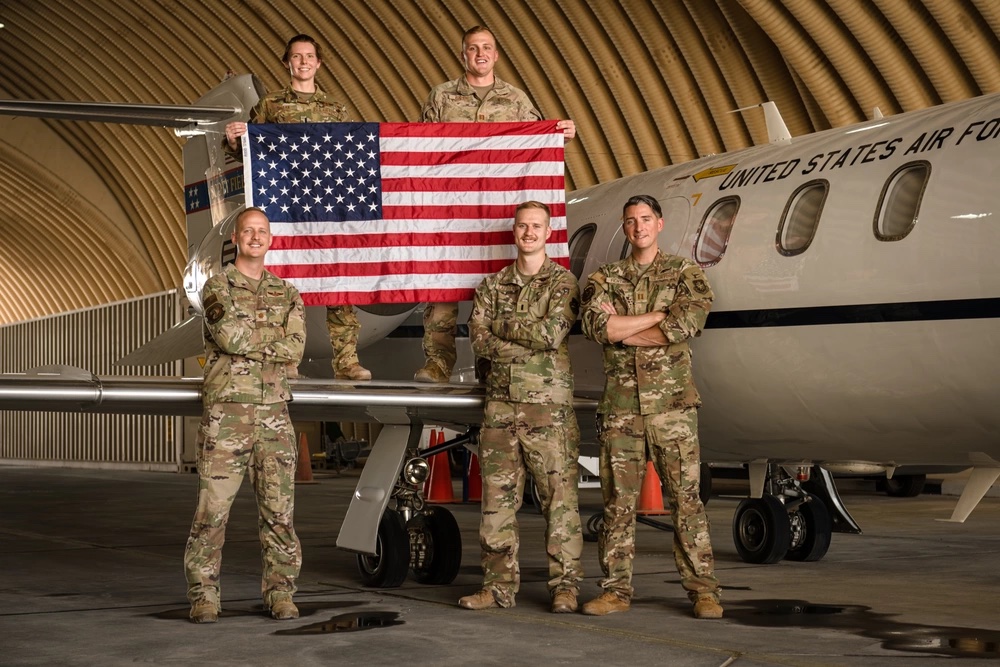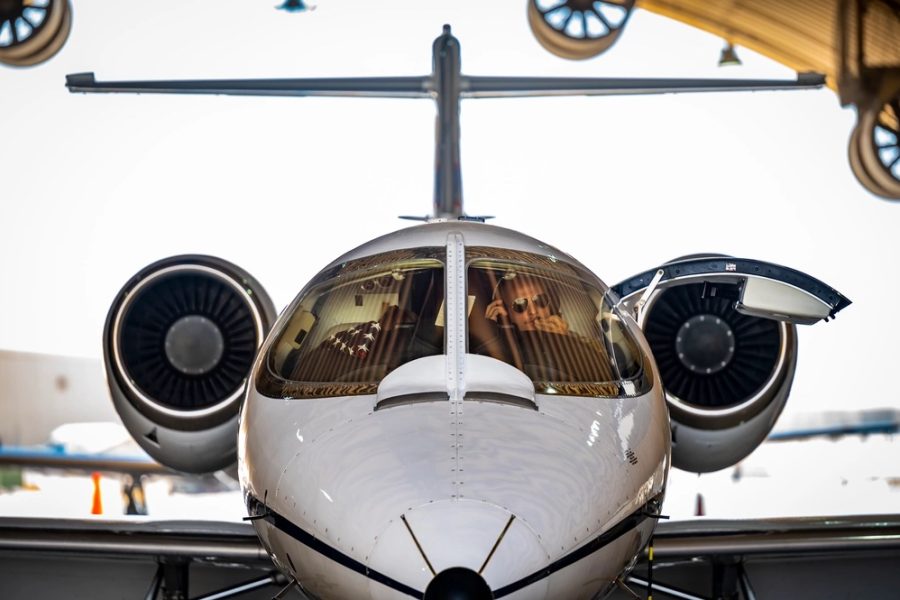After 32 years of flying VIPs, medical supplies, and injured passengers throughout the Middle East, the last Air Force C-21A Learjet departed Al Udeid Air Base, Qatar, on June 30, ending an era for a little-known aircraft that had an outsized impact overseas.
“As a younger pilot on my first deployment, it was exciting to see the capability we had to deliver our passengers into allied nations, knowing those passengers were there to do important work on behalf of the United States,” 1st Lt. Payton Lafrentz, a pilot with the 912th Expeditionary Air Refueling Squadron C-21 Detachment, said in a July 10 press release about the departure.

The C-21 is far more than just a business jet: during its decades-long tour of the Middle East, it served as a high-speed aeromedical evacuation platform, supply transport, and courier for messages that could not be delivered electronically. For example, during Operations Desert Shield and Desert Storm, C-21s carried classified air tasking orders, U-2 intelligence photos, and spare aircraft parts to units that could not receive them otherwise, the release stated.
“We even operated in combat zones where defensive systems were required,” Maj. Jonathan Daniels, director of operations for the 912th EARS’ C-21 detachment, said in the release. “This is where the famous combat Learjet rhetoric ‘unaware, unafraid’ came from.”
The jet can carry eight passengers, 3,153 pounds of cargo, one litter patient, or five ambulatory patients, according to Air Mobility Command. Even today, the jet’s crews seem to enjoy its versatility.
“Flying the C-21A during the summer is the hottest thing you can experience, but overall a great time transporting distinguished visitors, cargo, and aeromedical evacuation patients around the [area of responsibility],” said Capt. David Kocher, another pilot with the 912th EARS C-21 Detachment.
After leaving Al Udeid, the C-21 traveled to Scott Air Force Base, Ill., where it will continue to operate with the 375th Air Mobility Wing. The move is the latest in a series of consolidations for the jet, which first entered service in 1984. The Air Force originally had 84 copies of the aircraft on production, but the current inventory stands at just 19. Despite being 37.5 years old on average, the fleet had a 100 percent mission capable rate in 2022, according to the Air & Space Forces Magazine Almanac.

When asked if Air Forces Central plans on sending a replacement aircraft to perform distinguished visitor transportation in the Middle East, the command told Air & Space Forces Magazine that the UC-35, a business jet operated by the Marine Corps, already performs distinguished visitor airlift operations in that area of responsibility. Air Force C-130 and C-17 transport aircraft can also support that mission.
“Currently there are no other plans for other replacement aircraft (other than already existing platforms),” Air Forces Central said in a statement.
The crew who flew the C-21 to Illinois said they won’t forget the experience.
“Being the crew that gets to fly it home after a 32-year mission is simply amazing,” said Kocher. “I feel very fortunate to fly the jet home and put a stamp on the historic C-21 mission.”


